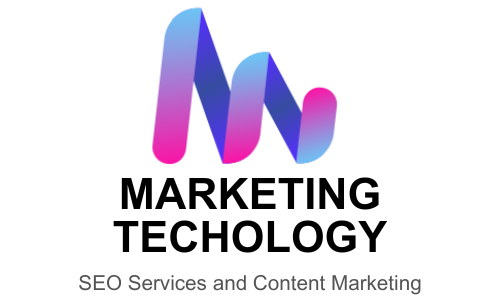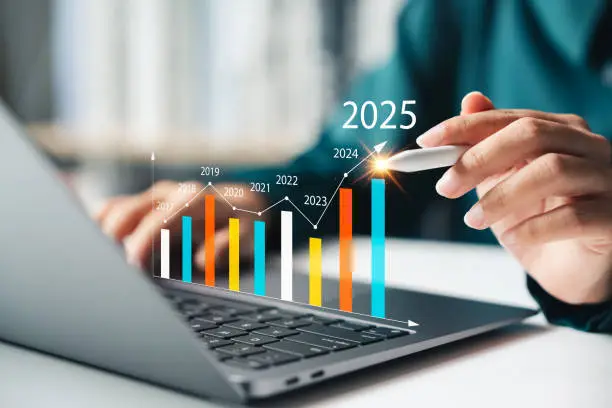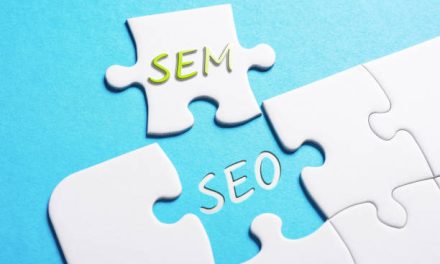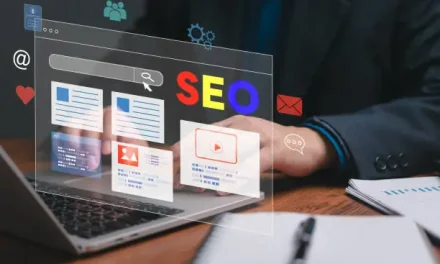As we step further into the 21st century, digital marketing trends for 2025 are already showing us how the future of marketing will look. The digital landscape is evolving rapidly, and with it, the tools and strategies marketers use to engage customers. As new technologies emerge and consumer behavior shifts, businesses must adapt to maintain competitiveness and relevance. This is especially true for those looking to leverage 2025 digital marketing trends to drive growth and innovation.
From artificial intelligence (AI) and automation to data privacy and the rise of social commerce, the next few years will bring significant changes to the way businesses interact with their audiences. Understanding these trends will give marketers the knowledge they need to create more effective strategies, enhance customer experience (CX), and streamline operations. In this article, we will explore the most important digital marketing trends expected to dominate in 2025 and provide actionable steps that businesses can take to implement them.
1. The Rise of AI-Powered Marketing
Artificial intelligence is already revolutionizing many industries, and digital marketing is no exception. By 2025, AI-powered marketing will have become even more advanced, offering businesses the opportunity to deliver hyper-personalized experiences on a scale never seen before. AI tools, like machine learning algorithms, will allow marketers to gain deeper insights into customer behavior, predict purchasing patterns, and create personalized recommendations based on individual preferences.
Action: To capitalize on this trend, businesses should integrate AI technologies into their marketing strategies. This can include implementing AI-powered chatbots for customer service, using predictive analytics for demand forecasting, and utilizing AI-driven content recommendations to boost engagement. Moreover, marketers should invest in automation tools that can help them deliver tailored email campaigns, website experiences, and targeted ads in real-time.
2. Social Commerce and Shoppable Posts

Social commerce is one of the most exciting 2025 digital marketing trends. Social platforms like Instagram, Facebook, TikTok, and Pinterest are increasingly making it easier for consumers to shop directly through their feeds. In 2025, the social commerce market is expected to grow even more as social media networks continue to integrate shopping features, creating a seamless and frictionless shopping experience for consumers.
Action: To stay ahead, businesses should optimize their presence on these social platforms by creating shoppable posts that allow customers to purchase products directly from the platform. Additionally, integrating product catalogs, user-generated content, and influencer partnerships will be key strategies for driving conversions through social media.
3. The Evolution of Voice Search
With the growing use of voice-activated devices like Google Home, Amazon Alexa, and Apple Siri, voice search is becoming a powerful tool in online shopping and information gathering. By 2025, voice search is expected to represent a significant portion of all searches made online. The shift towards voice search means that marketers will need to optimize their content for spoken queries, which tend to be more conversational than traditional typed searches.
Action: Businesses should begin optimizing their content for voice search by using natural language and long-tail keywords that mimic how people speak. For example, instead of targeting keywords like “best running shoes,” focus on more conversational phrases such as “What are the best running shoes for flat feet?” Optimizing for voice search will help brands appear in voice search results and increase visibility.
4. Cookie-Less Marketing
With growing concerns over online privacy, cookie-less marketing is a crucial trend that businesses need to prepare for in 2025. Privacy regulations like the General Data Protection Regulation (GDPR) and California Consumer Privacy Act (CCPA) are pushing marketers to rethink how they track consumer data. By 2025, cookies (small data files used to track online behavior) will be phased out in favor of more privacy-conscious methods of gathering insights.
Action: To prepare for the cookie-less future, businesses should focus on first-party data—data collected directly from consumers, such as through website interactions, email sign-ups, or loyalty programs. Marketers can also explore alternative methods of tracking user behavior, such as using context-based advertising or relying on server-side data tracking to ensure that privacy is maintained while still delivering personalized experiences.
5. Interactive and Immersive Content

By 2025, the demand for interactive and immersive content is expected to skyrocket. Technologies like augmented reality (AR) and virtual reality (VR) will continue to transform how brands engage with consumers. Interactive content like quizzes, polls, and interactive videos will also become more popular as consumers increasingly demand more engaging and personalized experiences.
Action: Marketers should explore the integration of AR and VR into their strategies. This could include offering virtual try-ons, creating immersive brand experiences, or providing virtual tours of products. Additionally, businesses should create more interactive content such as gamified experiences, quizzes, and polls to increase customer engagement and keep users returning to their platforms.
6. Sustainability and Ethical Marketing
In 2025, sustainability and ethical marketing will be more than just buzzwords—they will be central to how brands connect with consumers. As environmental and social concerns grow, consumers expect brands to align their values with their actions. Businesses that demonstrate a commitment to sustainability, ethical sourcing, and corporate social responsibility will gain trust and loyalty from consumers.
Action: Brands should make sustainability a key part of their messaging and operations. This could include highlighting eco-friendly products, reducing packaging waste, using sustainable materials, and supporting social causes. It’s also important to be transparent about the steps a brand is taking toward sustainability, as consumers increasingly demand authenticity and accountability.
7. Enhanced Customer Experience (CX) with Automation

Automation is rapidly becoming a critical component in delivering superior customer experience (CX). In 2025, businesses will increasingly rely on automation to streamline customer service processes, optimize marketing campaigns, and improve interactions across various touchpoints. Automation will help brands provide faster, more efficient services while also personalizing the customer experience.
Action: Businesses should invest in automation tools like AI-driven chatbots, email marketing automation, and automated social media management platforms. These tools will help reduce response times, improve the efficiency of marketing campaigns, and provide customers with a more personalized and consistent experience across all channels.
8. Hyper-Personalization through Data Analytics
With more data available than ever before, hyper-personalization will become a key driver of success in 2025. Data analytics tools will enable businesses to create highly customized marketing messages, offers, and experiences that resonate deeply with individual customers based on their behaviors, preferences, and past interactions.
Action: Businesses should harness advanced data analytics to gain deeper insights into customer preferences and behavior. Using this data, brands can craft personalized marketing messages, tailor product recommendations, and deliver unique offers that increase conversions and customer loyalty.
Let Us Help You!
As the digital marketing trends for 2025 evolve, staying ahead of the curve will be crucial for long-term success. At Marketing Techology, we specialize in SEO services and content marketing strategies that can help you leverage these trends effectively. Whether you’re looking to optimize your website for search engines, create compelling and engaging content, or develop a more personalized customer experience, we’re here to guide you through the changing digital landscape.
Our team of experts will work with you to ensure that your brand remains competitive, adaptable, and ready for the future of digital marketing. Let’s make 2025 your most successful year yet!
Frequently Asked Questions
Is social commerce dominating online shopping?
Yes, social commerce is rapidly gaining traction. With social media platforms like Instagram, TikTok, and Facebook incorporating shopping features, consumers can now purchase directly from their favorite platforms without leaving the app. By 2025, social commerce is expected to play an even larger role in driving e-commerce sales.
What’s the future of cookie-less marketing?
The future of cookie-less marketing lies in the use of first-party data and privacy-compliant alternatives. As privacy concerns grow, businesses will rely more on data directly collected from customers through loyalty programs, sign-ups, and direct interactions. Marketers will also use contextual advertising to deliver relevant ads without needing cookies.
How has e-commerce changed in 2025?
E-commerce in 2025 has become more integrated with social media and mobile apps, making online shopping even more seamless. New technologies like AR/VR, AI-powered recommendations, and voice search have transformed the shopping experience, making it more personalized and interactive for consumers.






Trackbacks/Pingbacks